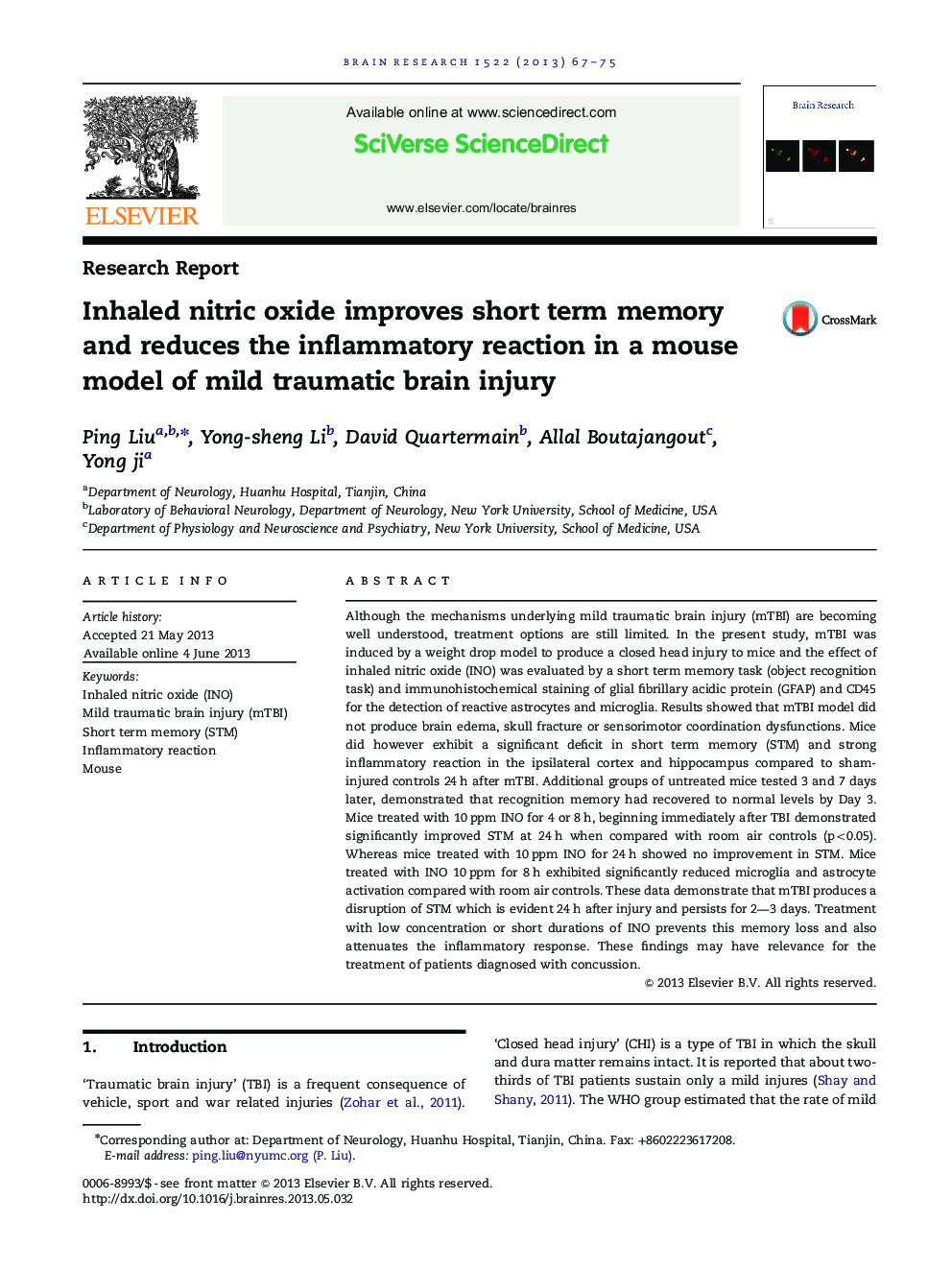| Article ID | Journal | Published Year | Pages | File Type |
|---|---|---|---|---|
| 6263801 | Brain Research | 2013 | 9 Pages |
â¢First study the relation between INO and cognition and inflammation in mTBI mice.â¢Low concentration of INO improves STM and reduces the inflammatory reaction.â¢Short durations of INO prevent STM loss and attenuates the inflammatory response.â¢INO should provide mTBI a new therapeutic direction.
Although the mechanisms underlying mild traumatic brain injury (mTBI) are becoming well understood, treatment options are still limited. In the present study, mTBI was induced by a weight drop model to produce a closed head injury to mice and the effect of inhaled nitric oxide (INO) was evaluated by a short term memory task (object recognition task) and immunohistochemical staining of glial fibrillary acidic protein (GFAP) and CD45 for the detection of reactive astrocytes and microglia. Results showed that mTBI model did not produce brain edema, skull fracture or sensorimotor coordination dysfunctions. Mice did however exhibit a significant deficit in short term memory (STM) and strong inflammatory reaction in the ipsilateral cortex and hippocampus compared to sham-injured controls 24Â h after mTBI. Additional groups of untreated mice tested 3 and 7 days later, demonstrated that recognition memory had recovered to normal levels by Day 3. Mice treated with 10Â ppm INO for 4 or 8Â h, beginning immediately after TBI demonstrated significantly improved STM at 24Â h when compared with room air controls (p<0.05). Whereas mice treated with 10Â ppm INO for 24Â h showed no improvement in STM. Mice treated with INO 10Â ppm for 8Â h exhibited significantly reduced microglia and astrocyte activation compared with room air controls. These data demonstrate that mTBI produces a disruption of STM which is evident 24Â h after injury and persists for 2-3 days. Treatment with low concentration or short durations of INO prevents this memory loss and also attenuates the inflammatory response. These findings may have relevance for the treatment of patients diagnosed with concussion.
